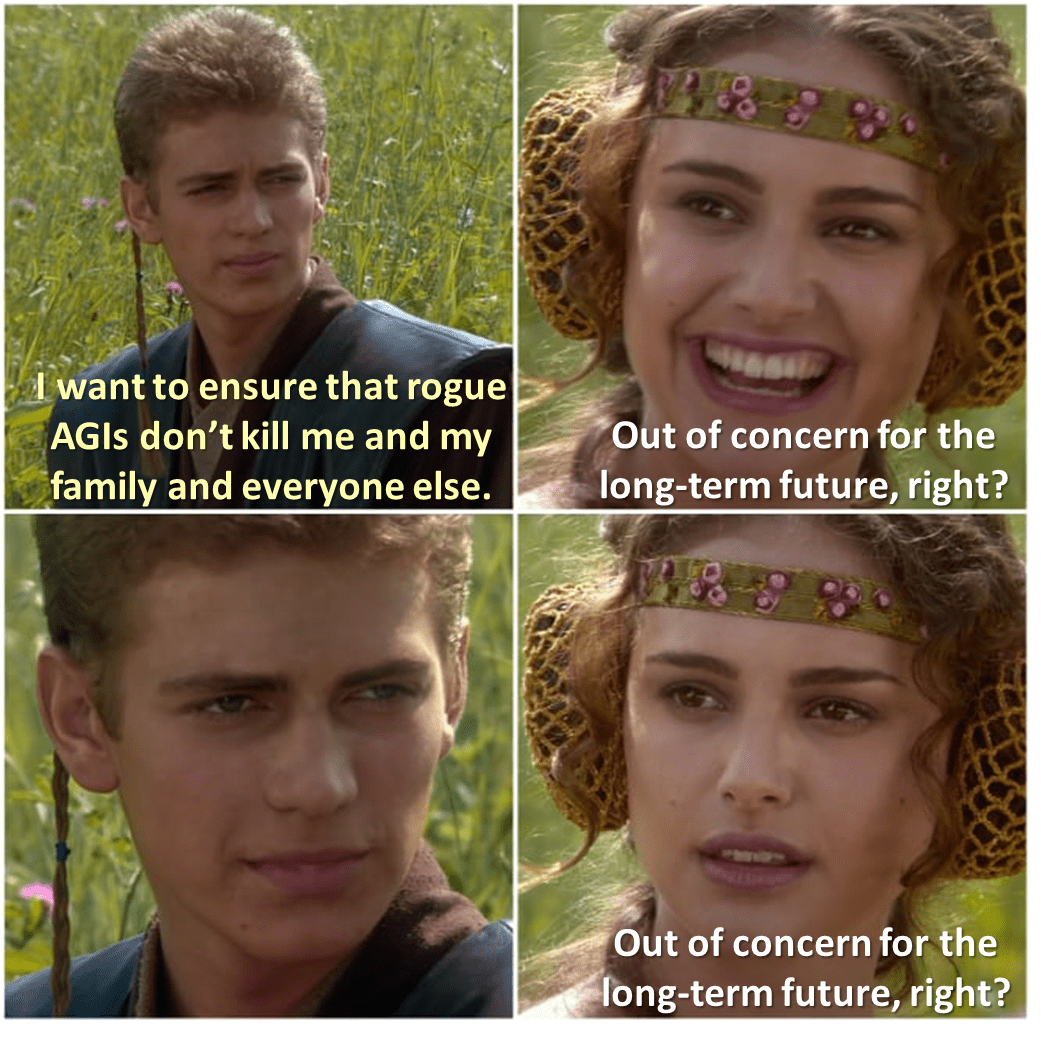1 Answers sorted by
51
See this Steve Byrnes meme:

I too have accepted money from EA orgs, attended EA conferences, and yet am not "an EA." So I don't find DanH's behavior odd or dishonest. It still could be, and in some places he could definitely be strategically saying this because it sounds better. But I think the main-line hypothesis should be that he's basically being honest - see the meme again if confused.
According to public reports, Dan Hendrycks has been influenced by EA since he was a freshman (https://www.bostonglobe.com/2023/07/06/opinion/ai-safety-human-extinction-dan-hendrycks-cais/).
He did the 80,000 hours program.
He worries about AI bringing about the end of humanity, if not the planet.
After getting his Ph.D., he started an AI safety organization instead of joining one of the many AI startups.
And he's taken $13M in donations from two EA orgs - OpenPhilanthropy and FTX Foundation.
Yet he denies being an Effective Altruism member when asked about it by the press. For instance (https://www.bloomberg.com/news/newsletters/2024-06-27/an-up-and-coming-ai-safety-thinker-on-why-you-should-still-be-worried)
As an aside, Hendrycks is not alone in this. The founders of the Future of Life Institute have done the same thing (https://www.insidecyberwarfare.com/p/an-open-source-investigation-into).
I'm curious to know what others think about Hendryck's attempts to disassociate himself from Effective Altruism.